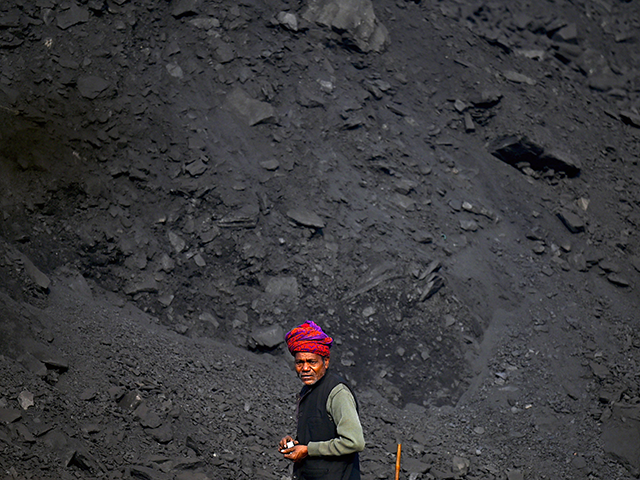India’s power ministry is projecting an eight-percent surge in coal demand during the next fiscal year after renewables underperformed by nearly 30 percent in 2022, while India’s imports of discounted Russian oil surged by an amazing 33 times year-on-year in December.
India’s huge jump in Russian oil imports was calculated by Bloomberg News on Monday based on cargo tracking data. The data showed deliveries of Russian oil rising by 29 percent from November to December, the latest in a series of increases that brought India up to 1.2 million barrels of Russian oil per day – 33 times the amount India was buying from Russia in December 2021.
Bloomberg News noted Russia is selling at a price India just cannot refuse and, while there is doubtless some grumbling about India compromising the U.S. and European effort to isolate Russia after its invasion of Ukraine, India’s relationship with the U.S. is too important to risk with a fiery confrontation:
Indian refiners have been lapping up cheap Russian crude since the invasion of Ukraine caused many buyers to shun the shipments. The sharp increase in December is possibly the result of deepening discounts due to additional sanctions from the G-7 and European Union including a $60-a-barrel price cap.
“Russia has likely offered its crude at an attractive discount to Indian refiners, which have surpassed China as the largest importer of Russian crude,” said Serena Huang, lead Asia analyst at Vortexa. Besides Urals, India has stepped up imports of other Russian grades like Arco, Sakhalin and Varandey in recent months, she said.
India meets more than 85% of its oil demand via imports, which makes it highly vulnerable to price volatility. The state-owned refiners, who have been prevented by the government from raising pump prices of diesel and gasoline since May, have increasingly favored cheaper Russian imports.
Russia overtook Iraq, Iran, and Saudi Arabia to become India’s top oil provider in November. The Biden administration had little to say about this milestone, beyond urging India to respect the price caps America and Europe are attempting to force on Russian oil, to keep profits from flowing into the Ukraine war.
India publicly refused to comply with the Biden administration’s demands in December, and it was not a polite refusal. Indian Oil Minister Hardeep Singh Puri defiantly stated India would get its oil from wherever it deemed necessary, accusing Western governments of hypocrisy for criticizing the Indo-Russian oil explosion.
India’s large purchases of Russian crude are threatening to undermine the entire sanctions regime against the Russian oil industry, as critics noted other countries can easily purchase refined Russian oil from India, including oil mixed into products such as diesel fuel.
As for coal, senior Indian officials last week projected an eight-percent increase in consumption for the fiscal year ending March 2024, as India is unwilling to risk its energy security on less reliable “green energy” alternatives.
This would bring India up to 821 million metric tons of coal consumed for the year, a figure that would probably be even higher if the Wuhan coronavirus pandemic had not reduced energy demand so much over the past two years, according to Indian officials. Demand was finally pulled out of its pandemic slump during the first quarter of fiscal 2022 by growing economic activity and a heat wave.
In addition to adding about 75 terawatt-hours of coal-fired electric power next fiscal year, Indian officials said they would add a vastly smaller 16 gigawatt-hours of renewable energy, increasing renewables by 16 percent. The officials said India remains committed to reducing its coal use at some point in the future.
India produces most of its own coal, but the surge of demand next year will require power plants to import about six percent of their needs. This will require India to increase the amount of railroad cargo capacity for coal by about 11%, and since China is also ramping up industrial production and relying on coal for most of its energy needs, worldwide price increases are inevitable.
A senior Indian government official told the Economic Times on Saturday that building up rail and sea capacity to carry all that coal will increase electricity costs to consumers by up to ten percent.

COMMENTS
Please let us know if you're having issues with commenting.